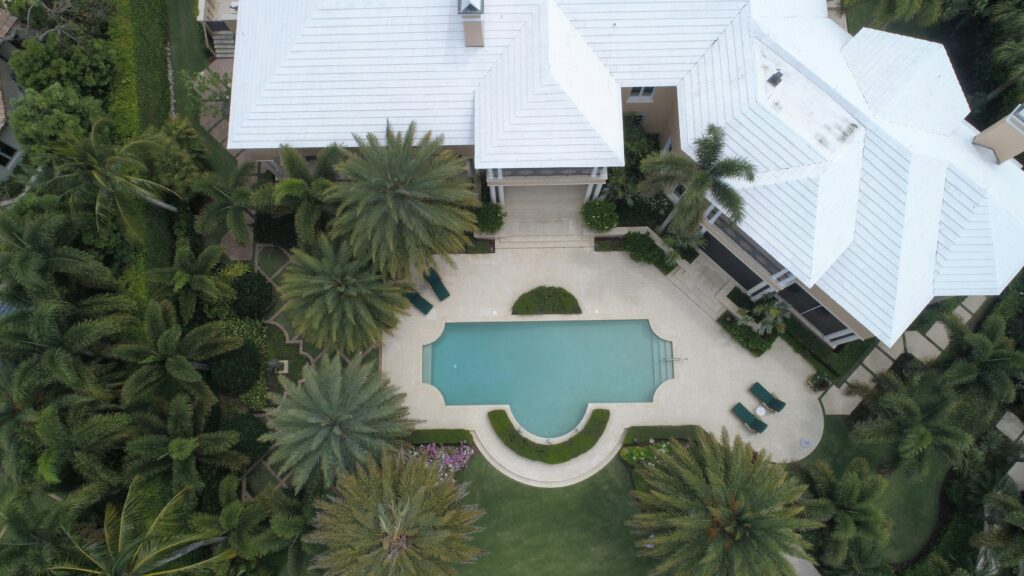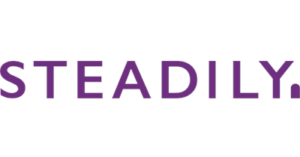A bill for $10,000 reaches your desk. A guest recently fell and hit their head at your property and needed a brief hospital visit.
Luckily, you’re prepared because you’ve already invested in a high-quality vacation rental insurance plan. But what if you hadn’t?
Short-term rental insurance protects hosts from unexpected events that may occur during a guest’s stay. From property damage to accidents, it’s important for hosts to understand the benefits of having the right rental insurance coverage.
Vacation rental insurance isn’t just an optional expense; it’s a necessity. This guide breaks down everything hosts and property owners need to know about protecting their hard-earned investment with vacation rental insurance and liability coverage.
What Does Vacation Rental Insurance Cover?
 It’s important to note that short-term rental coverage is different than homeowners insurance. While homeowners insurance may cover certain aspects of your property, it’s unlikely to include coverage for incidents caused during vacation rental activities, such as accidents involving guests.
It’s important to note that short-term rental coverage is different than homeowners insurance. While homeowners insurance may cover certain aspects of your property, it’s unlikely to include coverage for incidents caused during vacation rental activities, such as accidents involving guests.
Instead, vacation rental insurance is designed to cover and protect hosts from the situations and scenarios that are unique to hosting short-term vacation rentals.
Here’s a breakdown of the key aspects typically covered by vacation rental insurance:
- Liability Protection: This covers legal and medical expenses if a guest experiences bodily injury on your property. This is an important safety net that can potentially save you thousands in case of an accident or medical evacuation from your rental property.
- Property Damage: It provides coverage for damages to your property or belongings caused by guests. This can range from minor incidents, like broken dishes, to significant issues, such as structural damage.
- Loss of Income: If your property becomes uninhabitable due to a covered incident (e.g., fire or flood), this aspect of your policy may compensate you for lost rental income during repair periods.
- Additional Living Expenses: Occasionally, this covers the cost of alternative accommodation for guests if your property is suddenly unavailable due to emergencies.
- Theft Protection: Covers losses if items are stolen from your property during a rental period. While it’s best to remove or lock up valuables, theft protection offers peace of mind and security in your possessions.
Of course, not all policies are created equal. It’s important to consider your specific needs and thoroughly research the personal liability and property coverage of your potential insurance carrier. Insured vacation rental properties save themselves hundreds of thousands of dollars every year.
Examples of Items Typically Covered by Rental Property Insurance
 Below are a few practical examples of issues that are generally covered by short-term rental insurance. Again, it’s important to read the nitty-gritty of your insurance carrier’s policy before committing. Commonly covered items include:
Below are a few practical examples of issues that are generally covered by short-term rental insurance. Again, it’s important to read the nitty-gritty of your insurance carrier’s policy before committing. Commonly covered items include:
- Furnishings: Couches, beds, dining sets, and decorative items that are provided for the guest’s use.
- Appliances: Kitchen appliances, washers, dryers, and any other electrical devices for a guest’s enjoyment.
- Electronics: Televisions, sound systems, and gaming consoles available for guest entertainment.
- Personal Belongings: Any personal property left on-site for maintenance or convenience, such as tools or cleaning supplies.
Items Typically Not Covered by Short-term Rental Insurance
 On the other hand, certain items and scenarios fall outside the insurance plan. It’s important to be aware of what is not typically covered and find a way to either gain additional coverage or take preventive measures. Items typically not covered include:
On the other hand, certain items and scenarios fall outside the insurance plan. It’s important to be aware of what is not typically covered and find a way to either gain additional coverage or take preventive measures. Items typically not covered include:
- Wear and Tear: Gradual damage that occurs over time, such as carpet stains or furniture scuffs.
- Unreported Thefts: Losses not reported to the police within a specified time frame.
- Certain Natural Disasters: Depending on the policy, a natural disaster—such as an earthquake or flood—may require additional, specific coverage. Hurricane-prone areas may require separate policies to ensure complete coverage.
- Guest Belongings: Personal items belonging to guests are usually not covered, as guests are responsible for their own property.
The Best Vacation Rental Insurance Providers

As we mentioned above, there is no “one size fits all” insurance policy. However, there are a few industry standouts that are tried and true by the hosting community. Here’s a look at some of the top vacation rental insurance providers:
Steadily

Mashvisor works alongside Steadily to cover the rental property itself and landlord-owned furnishings. Steadily stands out from others on this list because it protects landlords from liability claims. Learn more here.
Pros:
- Protects landlords from liability
- Receive a quote online within minutes
- Includes coverage for fire and water damage, theft, guest medical bills, and lawsuits if a guest is injured on the property.
Cons:
- Can be more expensive than traditional short-term rental insurance
- Occasionally, a phone call may be required to complete the quote process
- Coverage does not include tenants’ property
American Family Insurance

American Family Insurance provides customizable insurance plans that can include property damage, loss of income, and liability coverage. They’re known for their personalized service and policy flexibility.
Pros:
- Customizable insurance policies
- Discounts are available for bundling with other insurance types
- Additional discounts are available for homes with safety features and smart home devices
- Excellent customer service
Cons:
- Not available in all states
- Some plans have high deductibles
- Not available for homes rented more than 62 days a year
Proper Insurance

Proper Insurance specializes in short-term rental insurance. Additionally, the Proper policy provides comprehensive coverage options that include building, contents, business income, and liability insurance tailored specifically for vacation rental owners.
Pros:
- Created specifically for vacation home properties
- Provides lost income coverage
- Available in all 50 states
Cons:
- Rates increase if the rental is the primary residence of the host
- Liability insurance must be purchased with a commercial bundle plan
CBIZ Vacation Rental Insurance

CBIZ offers one of the most specific insurance programs for a vacation rental business. The CBIZ vacation rental insurance policy covers property damages, liability issues, and income loss due to unforeseen closures.
Pros:
- Specifically designed for vacation rental properties
- Includes business income loss coverage
- High limits available on property damage coverage and liability
- Loss of income protection
- Liability coverage includes swimming pools, hot tubs, decks, lakes, exercise equipment, pets, and more
Cons:
- Premiums can be higher than average
- Limited coverage for guest injuries—only up to $5,000
Allstate HostAdvantage®

Allstate HostAdvantage® covers short-term rentals for accidental property damage, liability, and loss of income due to covered damages. They have a large network of agents around the country that provide some of the best customer service opportunities for home-sharing insurance on this list.
Pros:
- Bundle options available
- Covers up to $10,000 of a host’s personal property damage per rental period
- Considered to have an easy claim-filing process
- Easy-to-use mobile app
- A good option for hosts who live on the property
- Quickly reach an insurance agent
Cons:
- May require commercial insurance with an additional cost for certain activities, such as events or weddings hosted on the property
- Higher rates than competitors
Selecting the right insurance provider requires evaluating your specific needs against what each company offers. It’s essential to research and compare the pros and cons of each provider to ensure you find the best fit for your vacation rental property.
How Much Does Vacation Rental Insurance Cost?

The cost of vacation rental insurance is as varied as the policy options are. Your rate will depend on factors like location, the size of your vacation rental home, amenities like pools and spas, and the level of coverage you choose.
Generally, insurance policies can range from a few hundred to a few thousand dollars per year. A handful of insurance policies offer temporary rental coverage based on the number of days the vacation rental is actually booked (instead of the entire calendar year).
Some insurance providers offer bundle options that include both homeowners insurance, landlord insurance, and vacation rental insurance for an overall lower cost. However, be sure to carefully consider the coverage and compare it to stand-alone policies before making a decision.
Tips for Lowering Insurance Costs

Finding the right insurance for your short-term rental can feel overwhelming. That said, there are a few tips and tricks you can keep in mind to not only find great coverage but potentially lower the cost of your home-sharing plan. Take a look at these tips:
- Shop Around: Don’t settle on the first insurance quote you receive. Comparing quotes from multiple providers can help you identify the most competitive rates for the coverage you need.
- Bundle Policies: Often, insurers offer discounts when you purchase multiple insurance policies from them. For example, you can combine your vacation rental insurance with your auto, landlord, or homeowners policy.
- Increase Your Deductible: Opting for a higher deductible can lower your premium costs. Just make sure that you choose a deductible amount that you can comfortably afford in the event of a claim.
- Look for Loyalty Discounts: Some companies offer discounts to long-term customers. If you’ve been with your current insurer for a while, check to see if they offer loyalty discounts.
- Improve Property Security: Upgrading security features on your property, such as installing smoke detectors, burglar alarms, and outdoor security cameras, can sometimes lead to lower insurance premiums as they reduce the risk of claims.
- Review Your Coverage Annually: Your vacation rental property’s insurance needs may change over time. Reviewing your policy annually ensures that you’re not paying for unnecessary coverage and that your property is adequately protected.
Final Thoughts on Insurance for Vacation Rentals
 At the end of the day, it’s all about protecting your investment. Investing in the right insurance policy for your vacation rental provides peace of mind and can save you from financial loss in the long run.
At the end of the day, it’s all about protecting your investment. Investing in the right insurance policy for your vacation rental provides peace of mind and can save you from financial loss in the long run.
Don’t wait until it’s too late—make sure you have the proper insurance coverage in place before you begin renting out your property to guests. Remember, it’s always a good idea to regularly review and update your policy as needed to ensure that your home is as protected as it can possibly be. The vacation rental insurance market is large, but with careful consideration, you’ll find your perfect fit.


